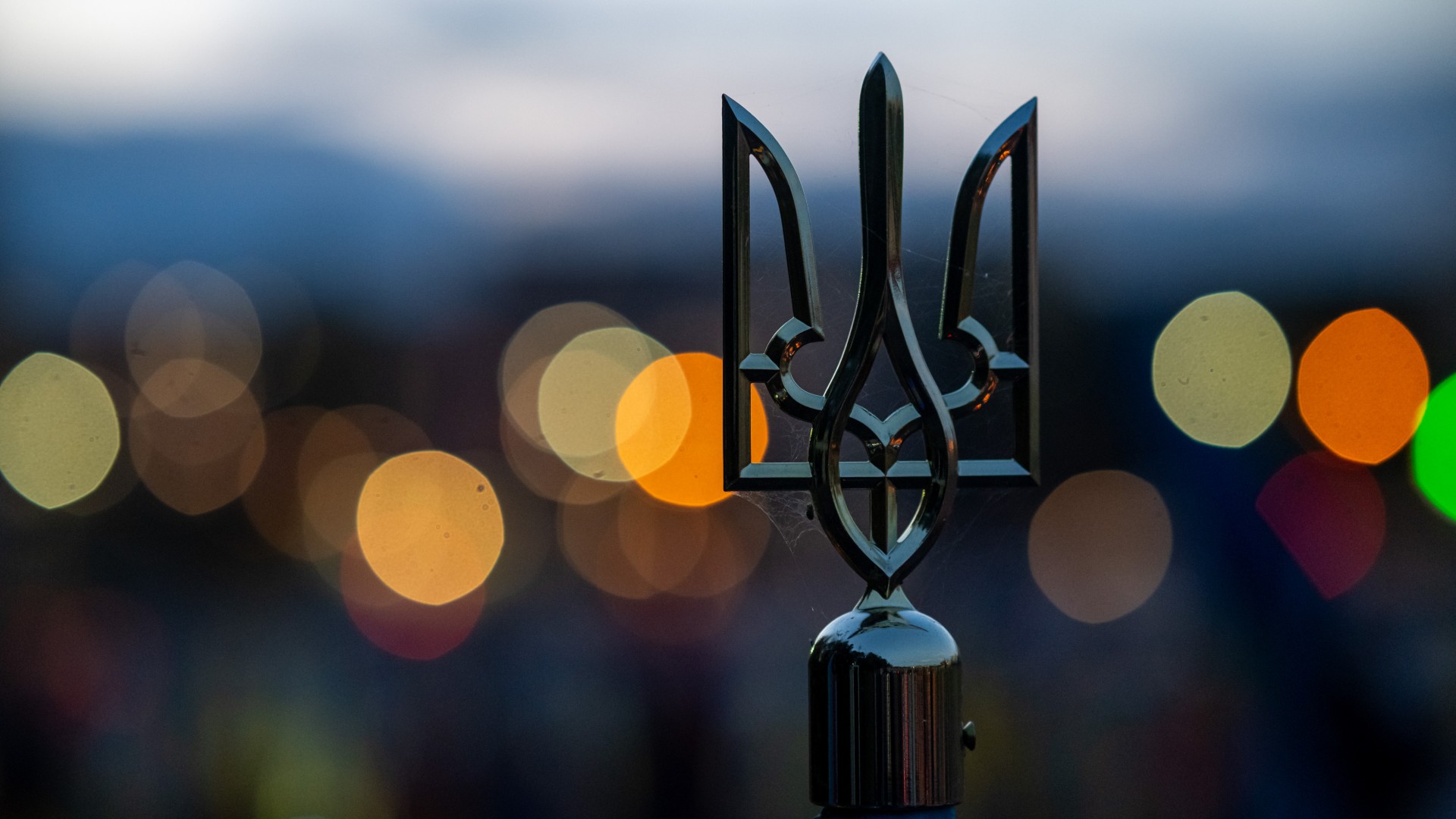What does victory now look like for Ukraine?
Not losing is as important as winning as the tide turns in Russia's favour again

A free daily email with the biggest news stories of the day – and the best features from TheWeek.com
You are now subscribed
Your newsletter sign-up was successful
Saturday marks the two-year anniversary of Russia's invasion of Ukraine, euphemistically referred to by Vladimir Putin as a "special military operation".
Fears of a quick Russian victory initially gave way to sweeping battlefield gains for Ukrainian forces, but the much-hyped Ukrainian counteroffensive last year failed to make any meaningful progress, before slowing to an effective stalemate. Now, as Western backing for Kyiv cools, Russian troops are once again on the front foot.
There has long been the belief that all that is required for "total victory" for Ukraine "is one more mobilisation of Ukrainian youth, one more tranche of Western financial aid, one more delivery of American, French or British wonder weapons", wrote Andrew Latham, a senior fellow at the Institute for Peace and Diplomacy, for The Hill. But the "strategic, operational and tactical realities of the war simply don't support any version of this argument".
The Week
Escape your echo chamber. Get the facts behind the news, plus analysis from multiple perspectives.

Sign up for The Week's Free Newsletters
From our morning news briefing to a weekly Good News Newsletter, get the best of The Week delivered directly to your inbox.
From our morning news briefing to a weekly Good News Newsletter, get the best of The Week delivered directly to your inbox.
What did the commentators say?
The conflict is now a "war of attrition", said the BBC's Kyiv-based correspondent James Waterhouse, and the difference in the size of the two countries is "becoming more apparent".
At 144 million, Russia's population is more than four times larger than Ukraine's, and "despite losing thousands of soldiers in the process, Moscow has made its size count by replenishing them almost immediately".
At the same time, Ukraine is facing a shortage of ammunition and military hardware. Speaking at the Munich Security Conference last week, President Volodymyr Zelenskyy said equipment shortfalls had been a key factor in the recent decision to withdraw from the city of Avdiivka. The withdrawal represented a strategic and symbolic loss for Ukraine and the first major gain by Russian forces in months.
By contrast, Russia has put its economy on a "war footing", said Al Jazeera, by allocating 6.5% of its total budget to replacing its significant losses on the battlefield.
A free daily email with the biggest news stories of the day – and the best features from TheWeek.com
With continued "Western dithering" and "Moscow's recent advances on the battlefield", said The Telegraph's defence editor Con Coughlin, the war "could be concluded in Russia's favour" long before the vital weaponry requested by Kyiv arrives.
But a focus on Western military support – or lack of it – masks a fundamental "delusional belief" said Latham, "that despite all of Ukraine's devastating defeats and strategic setbacks, victory is just around the corner".
The truth is, "there isn't", he said. "And the sooner policymakers and influencers on both sides of the Atlantic grasp this, the sooner we can get to a negotiated cessation of hostilities that stems, at least for the moment, the obscene carnage that has come to define this war."
What next?
Trying to find an "off-ramp does not mean letting Putin win", Stefan Wolff, professor of international security at the University of Birmingham, said on The Conversation.
For Russia, "not winning means that it cannot turn a free Ukraine into a vassal state despite certain territorial conquests", said Social Europe. It also means that confiscated Russian assets remain frozen, "that the sanctions continue and that it remains isolated from its European neighbours".
From Ukraine's perspective, "not losing means that it stops the Russian advance and achieves a ceasefire ending the trench warfare". An independent Ukraine, notwithstanding the losses in territory since 2013, "is firmly anchored in the economic, political and security structures of the European Union and the North Atlantic Treaty Organization (Nato)".
Enabling Ukraine to defend the areas currently still under its control will require more Western aid, "but also serious consideration of negotiating a ceasefire", said Wolff. With its hopes for Nato membership likely to remain unfulfilled in the short to medium term at least, Kyiv should instead look to secure bilateral security deals with G7 nations.
"Reassessing current realities on the battlefield in this way will undoubtedly be seen as appeasement by some," said Wolff. "But a more fitting analogy might be that of West Germany in 1949 and, even more so, of South Korea in 1953, both of which needed to establish internationally recognised borders in order to establish sovereignty in the face of hostile neighbouring powers."
In short, Ukraine needs to establish its own equivalent of the 38th parallel that divides North and South Korea. This was meant to serve as a temporary solution but has turned into a de facto permanent border – crucially guaranteed by the West – that has allowed South Korea to prosper into one of the most advanced and dynamic countries on the planet. This is what "victory" for Ukraine could look like.
Elliott Goat is a freelance writer at The Week Digital. A winner of The Independent's Wyn Harness Award, he has been a journalist for over a decade with a focus on human rights, disinformation and elections. He is co-founder and director of Brussels-based investigative NGO Unhack Democracy, which works to support electoral integrity across Europe. A Winston Churchill Memorial Trust Fellow focusing on unions and the Future of Work, Elliott is a founding member of the RSA's Good Work Guild and a contributor to the International State Crime Initiative, an interdisciplinary forum for research, reportage and training on state violence and corruption.